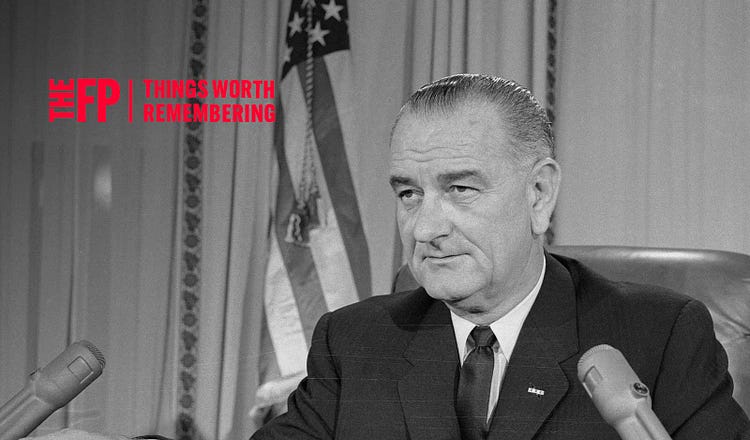
Welcome to Douglas Murray’s column, “Things Worth Remembering,” in which he presents great speeches from famous orators we should commit to heart. Scroll down to listen to Douglas reflect on Lyndon Johnson’s Thanksgiving address given on November 28, 1963—six days after John F. Kennedy’s assassination.
We are fast approaching Thanksgiving, and many Americans, no doubt, are wondering what they have to be thankful for.
There’s the skyrocketing cost of pretty much everything. Rising crime. Endless wars. And perhaps worst of all, this fear that we’re falling apart—that Democrats and Republicans can’t work together, that in the middle of the turkey and stuffing a brawl might break out between the “communists” and “fascists.” (There were no communists or fascists on the ballot this year, the partisan smears notwithstanding.)
Over the past year, there has been much talk about America being more divided than ever. It’s easy to forget, in the midst of all the emotion and politicking, that this is an exaggeration—to say the very least. There was the Civil War. And, of course, the Civil Rights struggles of the 1960s.
In the 1960s, political violence—including assassination—became an unavoidable fact of life in America. The first devastating and consequential assassination of the decade took place on November 22, 1963, when Lee Harvey Oswald murdered President John F. Kennedy in Dallas.
That single act of violence has spawned countless conspiracy theories; fueled suspicion of the “military-industrial complex” (a suspicion that has morphed into antipathy toward the “deep state”); and driven what seems, at times, a permanent wedge between the government and the governed.



